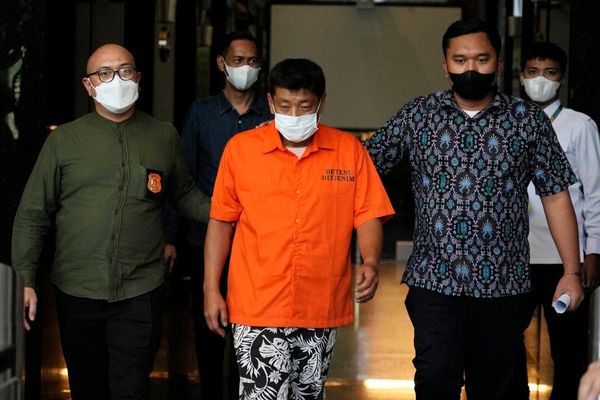About 70% of the people suspected of committing coronavirus-related subsidy fraud are younger than 30, according to National Police Agency statistics.
The NPA's figures show that about 2,500 people in their 20s and younger were arrested or referred to prosecutors in connection with such fraud over a roughly two-year period that ended May.
Many were reportedly attracted by statements on social media saying "You can get money easily" and similar enticements. A senior police official said many young people may have committed transgressions due to a lack of careful consideration.
The government's COVID-subsidy program provided support to self-employed workers and others whose incomes were affected by the pandemic, offering payouts of between 1 million yen and 2 million yen to help them keep their businesses afloat.
The Small and Medium Enterprise Agency accepted subsidy applications from May 2020 to February 2021, and a total of 5.5 trillion yen was provided to eligible applicants nationwide.
The government minimized documentation and simplified other steps for the application procedure with the aim of providing swift financial aid, but this seems to have caused an uptick in duplicitous requests for such help.
According to the NPA, as of the end of May, police across the nation had recorded 3,315 cases of fraud related to the subsidy program, with total payouts of 3.2 billion yen involving around 3,770 individuals. By age bracket, 2,300 suspects were in their 20s, comprising 62% percent of the total number of cases. When combined with about 200 teen suspects -- around 6% percent of the total figure -- under-30s comprised almost 70% of the total.
About 500 people, or 14% percent of the total, were in their 30s, while those in their 40s and 50s accounted for 8% and 5%, respectively. Suspects age 60 and older made up 5% of all cases.
Shortly after the government began accepting applications for the program, messages started appearing on social media saying such things as, "We'll apply on your behalf" and "Company employees can receive subsidies."
Many of the people who applied were reportedly "coached" on how to appear as self-employed. In many cases, these "coaches" are believed to have received a portion of the defrauded money.
As of June 1, the Metropolitan Police Department had arrested seven men and women in their 20s, including a Tokyo Regional Taxation Bureau official, over alleged fraud. Those arrested sought applicants by stating "It's not a crime" and used the Line communications app to instruct people on how to apply for a subsidy. They also allegedly swelled applicant numbers through word-of-mouth recommendations.
A then 17-year-old high school student who was referred to prosecutors for fraudulently receiving a subsidy was quoted by police as saying, "I trusted them because a close upperclassman invited me [to apply]."
Takayoshi Doi, a professor of criminal sociology at the University of Tsukuba who specializes in crimes committed by younger people, said: "Young people tend to forge ties with similar types on social media or through other means, and they become bound by group rules. It's important for young people to interact with a variety of people and broaden their perspectives so they can discern such groups' faults, and thus stop themselves from straying from the rules of society."
Read more from The Japan News at https://japannews.yomiuri.co.jp/










